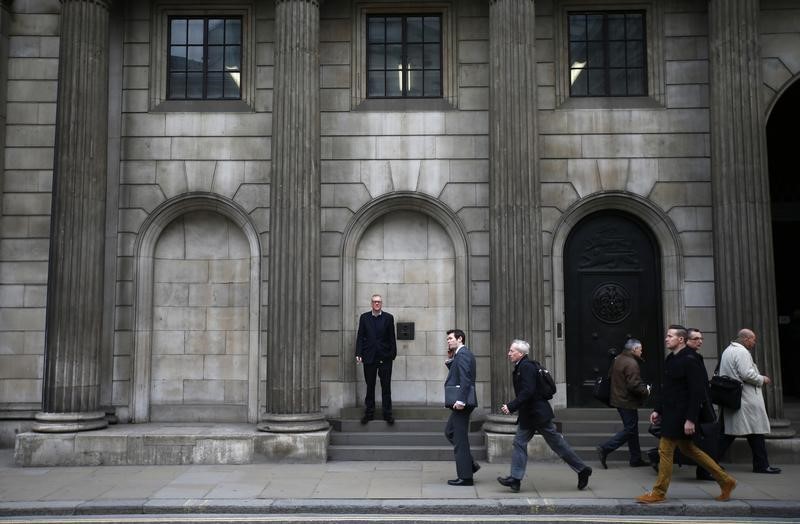By Claire Milhench
LONDON (Reuters) - British investors raised their equity allocations in October on expectations of further stimulus from the European Central Bank and the Bank of Japan, a Reuters poll found, but worries about a global economic slowdown lingered.
The monthly survey of 10 investment managers based in Britain showed that the average exposure to equities rose to 52.4 percent, rebounding from a three-year low of 47.6 percent touched in September.
The poll was conducted between Oct. 19 and 28, a period in which ECB president Mario Draghi signalled the central bank was ready to unleash more monetary stimulus worth billions of euros, sending European stocks higher.
"The European Central Bank and the Bank of Japan are likely to exploit further quantitative easing, which in turn is likely to see bond yields fall and equity markets rise, therefore we would be buyers of Japanese and European equities," said Peter Lowman, chief investment officer at Investment Quorum.
Within the fixed income portion of their portfolios, asset managers ramped up exposure to euro zone bonds, upping the average holding to 25.3 percent from 15.2 percent.
Thomas Dickson, investment analyst at Standard Life (L:SL) Investments, said European bonds were also being supported by low inflation and modest economic growth.
Managers were generally more bullish about the outlook for stocks, with all those who expressed a preference saying that 2016 would be a positive year for equity performance.
Equities got off to a strong start in the last 2015 quarter, with the S&P 500 (SPX) up over 8 percent and the FTSE Eurofirst (FTEU3) up just under 8 percent.
But doubts persist over the health of the global economy, with investors unsure they have seen the end of the turbulence that dogged markets over the summer.
Allocation to North American stocks rose to 29.5 percent in equity portfolios, from 21.5 percent in September, but managers were becoming concerned about stretched valuations and the possibility of U.S. growth momentum stalling.
"With equity valuations high, any significant disappointment in U.S. growth and corporate earnings will do a lot of damage to global stock markets," said Rob Pemberton, investment director at HFM Columbus.
Lowman of Investment Quorum also highlighted the risk that the U.S. Federal Reserve was behind the curve and might later need to raise rates more than the market expects. "Then we might experience another bond tantrum," he warned.
Although the Fed held off raising rates at its October meeting, it left the door open for a potential rate rise in December. But of the managers who expressed a preference in the poll, the majority thought the Fed would hike in the first quarter of 2016.
